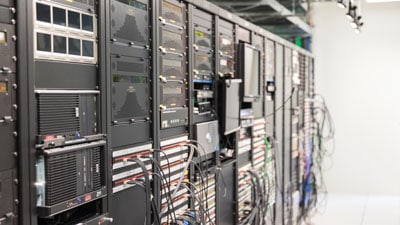
Managing your data in the digital era
Volumes of data processed by Organisations are constantly increasing and inevitably transforming to digital formats generating more opportunities and space for perpetrating fraudulent activities.
At PwC, we help Organisations to prepare for the fraud-related challenges that digitalisation brings through applying innovative approaches and using powerful technology to effectively and efficiently find, preserve, retrieve, process, and analyse a wide array of electronic information. In our work, we provide forensic reviews both of unstructured data (such as emails, office documents, photographic images etc) and structured data, such as the one you might find in a finance database.
Computer Forensics and eDiscovery
What do we specialise in?

Electronic Discovery
The pervading trend of using IT and Internet across different aspects of Organisations' activities facilitates opportunities not only for empowering achievement of strategic business goals and objectives of the Organisation but also for perpetrating different types of fraud. In order to ensure timely prevention and effective response to potential wrongdoings, the need for introduction and implementation of new approaches, alongside with more classical ones (i.a. interviews, paper documents review, etc.) comes to fore – namely the use of specialized forensic technology and equipment.
At PwC, we help Organisations to timely and efficiently identify, preserve, retrieve, process, and analyze a wide array of electronically stored data and information in a secure way using specialized forensic tools and capacities as well as PwC computer forensics laboratories worldwide.

Data Analytics
As a result of the information volume explosion, more and more data is being gathered every day. The ability to leverage data is no longer an extra asset, but has become pivotal to ensuring effective business operations on the market.
We gather information from Organisations’ IT systems, genuinely append it with data from external sources, perform thorough multi-dimensional analysis through sophisticated algorithms and visualisation techniques order to identify potential irregularities (i.a. fraud, corruption and other matters of potential concern) that contribute to more considered management decision-making.

Device Imaging
Either in the course of forensic review or during design and implementation of preventive counter measures it is crucial to ensure that relevant data is properly secured, processed and prepared for analysis.
For that purpose we use specialized forensic solutions to capture existent data from various devices (i.e. laptops, smartphones, etc.) and storage media, covering temporary and unallocated areas, as well as to recover previously deleted data wherever deemed possible.

FAIT – Automated mass screening of business partners
Lack of regular and comprehensive integrity screening may result in failure to timely identify, sustainably prevent and properly respond to risks of dealing with potentially untrustworthy business partners (i.a. those with potential integrity issues, reputational implications, etc.).
Bearing in mind that most Organisations usually tend to deal with numerous business partners, we have developed an automated data analytics tool (FAIT) that enables to gather, process, collate and visualize tons of information about business partners regardless of the portfolio size. The use of FAIT provides for automated integrity screening of vendors, customers and distributors across more than 40 statutory, financial, location and media risk criteria, flexibly adjustable in terms of their weight to the Organisation's industry, market specifics as well as operational and strategic expectations and needs.
Contact us

Andriy Tretyak
CFE, CISA, Forensic and Financial Crime Leader, PwC in Ukraine
Tel: +380 44 354 0404









